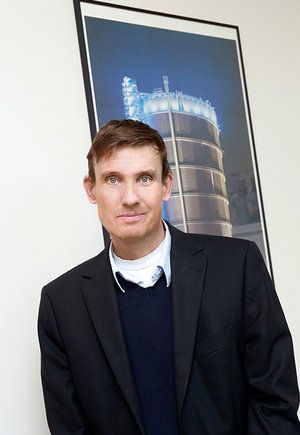
Transfer and Sustainability
The Faculty of Chemistry approaches the subject of sustainability from ecological, economic and social perspectives, in which the United Nations’ 17 Sustainable Development Goals play a particular role. It therefore deals with sustainability on very many different levels. On the operative level, it is apparent from the fact that all the chemicals used in the Faculty are recorded in a register (DAMARIS), which ensures economical and efficient use of stocks and minimal need for additional reagents.
Sustainability is also an important part of research in the Faculty. The Organic Chemistry groups, for instance, produce active ingredients that can be used in entirely new ways for transfection and to fight virus infections. Special mention should be made here of the great progress that has been made in developing supramolecular ligands that are highly effective in hindering pathological protein aggregation in animal models. These ligands are to be optimised as drug candidates for fighting the hitherto incurable diseases Alzheimer and Parkinson’s, which means that a significant contribution is being made here to the sustainability goal of “good health and well-being for all”.
Work at the Biofilm Centre includes biotechnological developments ranging from water treatment and site remediation to enzyme production and development of new production strains, such as for biotechnologically relevant products. The Biofilm Centre is thus also conducting important research that relates to no fewer than three of the sustainability goals, “Clean water and sanitation for all”, “Conservation and sustainable use of the oceans, seas and marine resources” and to “Protect terrestrial ecosystems”. “Herausforderung Wasserforschung – Lokal, regional und global” (The challenge of water research – local, regional and global) is the title of the 51st volume of UNIKATE, which was published by the UDE in 2018. It contains many contributions from the Faculty of Chemistry that deal with sustainable management of water resources. Sustainability is equally a central component of the Forschungskolleg FUTURE WATER research training group, the spokesperson of which is a member of the Faculty of Chemistry. Research in chemistry didactics is also actively pursuing another of the sustainability goals, “Education for all”. Health and environmental education are the subject of other projects alongside the studies described above in empirical educational research. Following on from the studies that have been conducted in the past on knowledge, interest and behaviour among students at different types of schools and in different year grades, efforts have been made for some years now to assess the effectiveness of the teaching concepts that were developed on the basis of those previous findings. The primary objective is to reach young learners in particular before behaviours manifest themselves that “healthy” (health-promoting and environmentally aware) alternatives have little chance of competing with.

